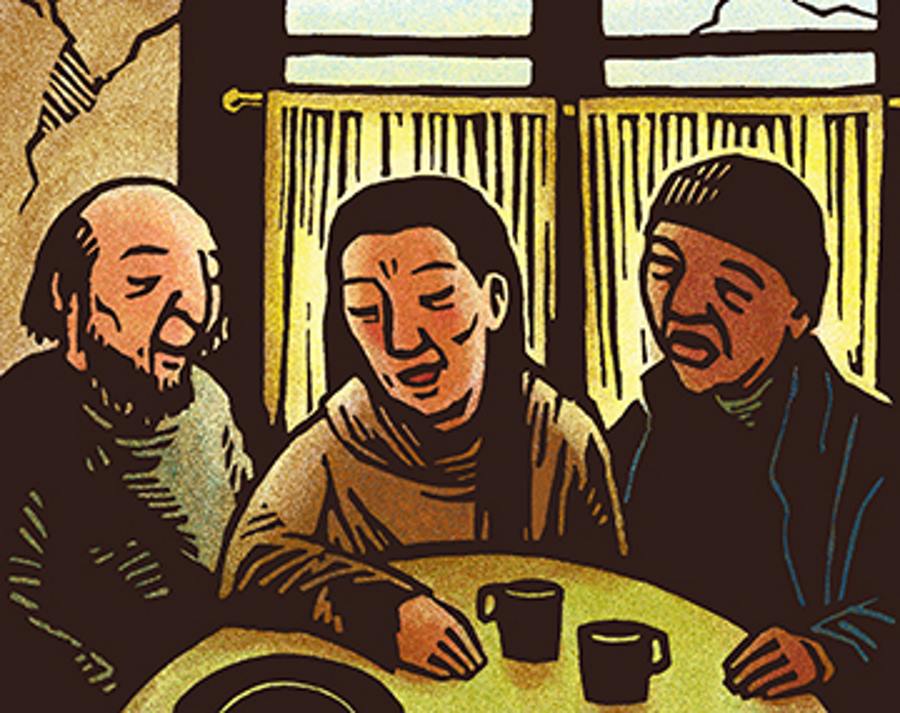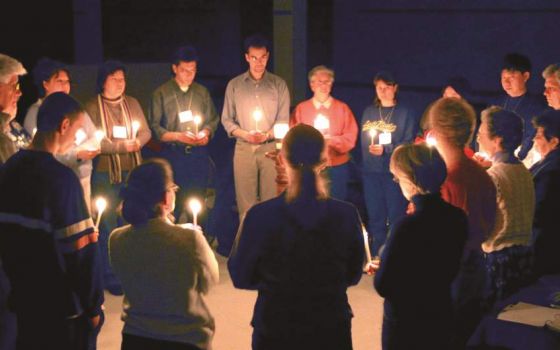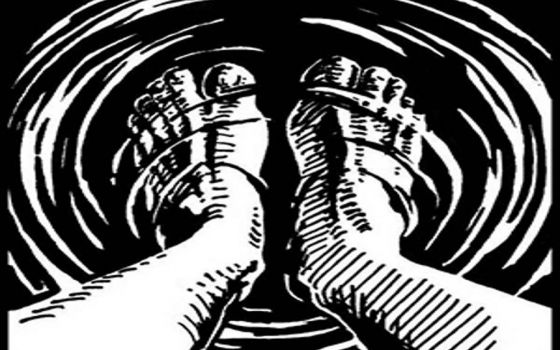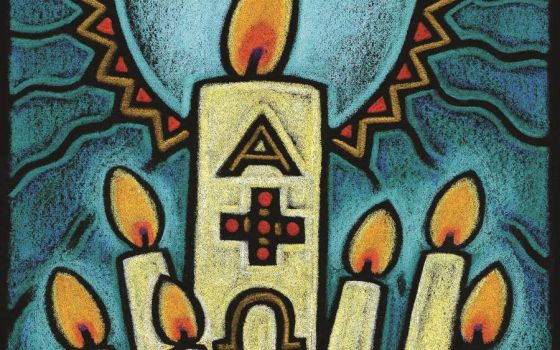
(Julie Lonneman)
It is March. Some among us are consumed with tax season, and others are fixated on basketball's March Madness or on spring break vacations. Some wait for college acceptances while others begin to register children for summer camps. Still others can talk of little else but baseball's spring training. In some cities (yes, I do live in Kansas City), a good portion of the population is focused on the countdown to opening day. All of these things speak to our places in the world — our work, our families and our play.
But for people of faith, March means something more. March is the time of year when we take stock, make amends and resolve to do better as we immerse ourselves in the spiritual disciplines of Lent. Distracted, busy, consumed with things of this world, we often are challenged to put faith first. The world is graced and good, and it is where we were placed by God. It is where we belong and are called to be. But it's not easy to integrate what sometimes seems like two far-apart worlds.
How, then, do we fulfill the responsibilities of daily life and still embrace the season of spiritual renewal? The Catholic tradition encourages the practices of prayer, fasting and almsgiving during these Lenten days. Each year, we think about and choose some variation on these age-old practices with the hope and intent of deepening our lives of faith.
We consider and weigh options as we wonder how to merge the desire to pray more faithfully with the reality that days are already chock-full and it seems difficult to imagine doing one more thing. The fasting options are ever expanding: Do we fast from food, alcohol or sweets? Or do we fast from social media, television, gossip, or accumulation of goods? (We might like to fast from car pools and work deadlines, but that is not realistic unless one is headed to a hermitage.) Sharing time, talent and treasure is a way of life for some, and they don't need to do more during this season. But for all of us, in Lent and in every other day of the year, faith's call to generosity reminds us that giving alms is essential to the Christian life.
Not long ago we gathered a group of 12 for an evening of formation for new Extraordinary Ministers of the Eucharist. There were cradle Catholics in the group, people formed by the Baltimore Catechism, as well as people who had never heard of that catechism. There were RCIA alumni, Christ Renews His Parish past participants, new parishioners, fourth-generation parishioners, and a parish wedding coordinator thrown in for good measure.
On that evening, the group explored the catechism's names for the Eucharist (Catechism of the Catholic Church #1328-1332) and chose their favorites: the Breaking of the Bread because it connects us to the first Christian community, the Lord's Supper because it is the meal Jesus shared with his disciples, Holy Communion because it draws attention to our union with Christ and with one another, and Holy Mass (from the Latin missa) because it reminds us that we are sent into the world to live the faith we profess. As the discussion continued, the group was visibly moved when they read a description of the Sunday gatherings of second-century believers (CCC #1345) and recognized the same elements of the Eucharist that they celebrate each Sunday.
Advertisement
But the evening's richest discussion focused on Thomas Porter's hymn that we sang as evening prayer:
Let us be bread, blessed by the Lord, broken and shared, life for the world. Let us be wine, love freely poured. Let us be one in the Lord.
The discussion brought us to the brink of grasping the grace of transformation. We bring our busyness, the concerns of work and family, to the table of the Lord. We who are most ordinary come as we are. In all our human need and imperfection, we come to be blessed, broken and then shared with others. Then, we are sent (missioned) to the world where we belong, to be love freely poured, to give life to the world.
When all is said and done, Lent is a season that calls us live in the world, not out of it — to love what we do, who we live with; to be filled with gratitude and to live with generosity that is rooted in God. The age-old practices might help us grow in God's love, or we might want to simply ask the question: What would help me in this Year of Mercy to be a better vessel of God's love? Think about it and see what you come up with. I might go to bed earlier, exercise more regularly, read the daily scriptures and write in a journal, pray to let go of judgment, and ask for the grace to be filled with joy.
Editor's note: This reflection was originally published in the March 2016 issue of Celebration. Sign up to receive daily Lenten reflections.








